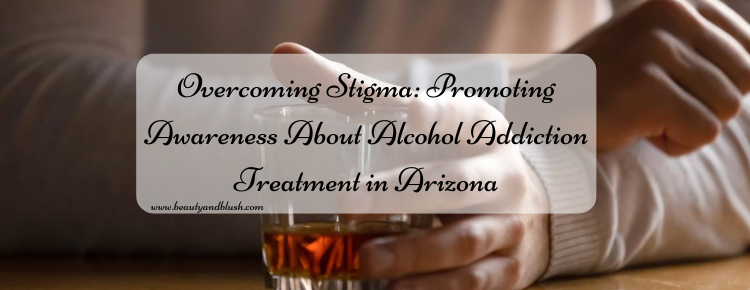Overcoming Stigma: Promoting Awareness About Alcohol Addiction Treatment in Arizona
Hello Everyone,
Addiction stigma refers to the negative views, notions, and misconceptions about those who struggle with addiction. Many factors can affect a person who feels stigmatized because of their alcohol or drug addiction. Feeling that they are imperfect, which can damage their self-esteem and drive them more into the depths of addiction. Feelings of humiliation and loneliness can be increased by the belief that no one can relate to what they are going through or care enough to offer support. Hiding their problems from friends and family out of concern that they’ll be harshly criticized or rejected can keep them from getting the help they need.
An integration of environmental elements causes the persistent nature of addiction. An individual will have the clarity to gain sobriety after receiving assistance from Alcohol Rehab Arizona to stop abusing alcohol and start living a sober life.
What Contributes To The Addiction Stigma?
Misconceptions and preconceived notions regarding AUD often contribute to the stigma around addiction. Many people think that the victim is morally reprehensible, weak-willed, or incapable of exercising self-control. Social marginalization and discrimination may result from these views. The media perpetuates these misconceptions by portraying people with alcohol abuse problems negatively.
The stigma can have detrimental effects on those who suffer from addiction disorder, such as limiting their access to treatment and raising their chance of relapsing. To address this issue, bigotry and stereotypes must be reduced.
Recognizing and Overcoming Stigma with Assistance
The stigma around addiction recovery must be addressed since it can have long-lasting effects on a person’s willingness to get treatment and seek help. Seeking assistance shows strength rather than weakness. Stigma must be stopped by acknowledging that addiction is a medical condition rather than a moral failure. There is help available, and healing is achievable. With this kind of mindset, you can begin to overcome the stigma that is standing in your way and make the initial steps to reclaim your life.
Combating and Eliminating Addiction Stigma
If we are to succeed in the battle against the stigma associated with addiction, we must take proactive measures that foster empathy, understanding, and support. Society, medical professionals, lawmakers, and individuals must work together to eradicate the detrimental effects of stigma. Campaigns for awareness, educational initiatives, changes to policies, and networks of community support are a few examples of collaborative endeavors.
Addiction impacts people from diverse backgrounds. People can seek help without fear of being judged in a safe space that we can create by cultivating an atmosphere of understanding and support. Promoting empathy also involves dismissing myths and misconceptions regarding addiction. Rehab centers are essential for eradicating the stigma associated with addiction. We can provide those in recovery with a sense of understanding, support, and belonging by encouraging and engaging with recovery communities. Honoring the accomplishments and successes of individuals in recovery serves to dismiss misconceptions and emphasize the potential for rehabilitation.
 Speak Up
Speak Up
Whenever you speak up when you hear or see statements or behaviors that spread alcohol addiction stigma, you can encourage discussions that promote awareness by pointing out that addiction is a brain disorder that can be treated and that sobriety and recovery are attainable and long-lasting.
Alcohol rehab centers like Nirvana Recovery have the power to impact people’s lives. The fact that therapy is effective is crucial. These patients are capable of recovering and leading fulfilling lives when they register in an effective rehab program.



